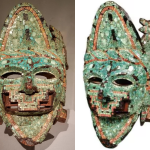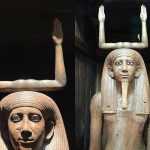The Gilded Cage and the Unbreakable Song

The wallpaper in their tiny apartment, a faded, busy swirl of brown and cream, felt like a cage to young Evelyn. Yet, looking at the black and white photo of her mother, Clara, and her three young children—Evelyn, her younger sister Maisie, and her older brother Thomas—she saw not the poverty but the fierce, almost reckless love in her mother’s eyes.

Clara was a single mother in the late 1960s, a time when life offered little safety net. Her pockets were perpetually light, often holding nothing more than a few coins and a grocery list she’d already memorized. Thomas, with his gap-toothed, mischievous grin, wore a sweater with a cartoon beetle that was threadbare at the elbows. Maisie, a toddler with a wild laugh and bright, untamed curls, bounced happily on Clara’s shoulder, utterly oblivious to the gnawing worries that kept her mother awake at night. And baby Evelyn, held securely in the fortress of her mother’s lap, stared wide-eyed at a future she knew nothing about.

Their dinner often consisted of watery soup or cheap, filling rice, but Clara always served it with a flourish, calling it “Queen’s Broth” or “Dragon’s Feast.” She wasn’t just feeding them; she was weaving a mythology of prosperity around their hardship.
The darkest times often came during the cold, relentless winters. The heating bill was a monster she couldn’t tame. One December, with Christmas looming and only two loaves of bread left, Clara sat them all down on the worn sofa, the same one in the photo.
“The wind is a greedy wolf tonight,” she said, her voice steady despite the shivers. “But we have a secret weapon, children. We have us.”

That night, instead of presents, she told them to draw their dreams on scraps of brown paper bags. Thomas drew a sleek, fast car. Maisie drew a giant, smiling sun. Evelyn, only five, drew their little apartment, but with a magnificent, sparkling roof—a visual echo of her mother’s promise.
Before tucking them in, she sat by the kerosene lamp and told her nightly mantra, a simple, non-negotiable decree: “We’ll make it. We’ll make it, my loves. I promise you.” It wasn’t a hope; it was a vow, an unbreakable truth she poured into their souls.
Clara’s courage was the mortar between the bricks of their lives. When a neighbor suggested she put the children up for adoption to “give them a better life,” Clara’s spine stiffened. “My love is their better life,” she’d responded, her gaze never wavering. She took on extra shifts scrubbing floors at a factory, her hands chapped and raw, but she’d come home and still find the energy to mend Thomas’s trousers or braid Maisie’s hair.

Years later, when Evelyn graduated from college—the first in their family—she looked out at the audience and saw her mother. Clara was older, her hair now streaked with silver, but her eyes held the same fierce, indomitable spark captured in the black and white photo.
Evelyn knew then that the house they built wasn’t made of wood or plaster. Her mother’s love was the roof that kept out the rain of despair, and her courage was the walls that kept them safe from the world’s indifference. Their success wasn’t a miracle; it was the masterpiece Clara had spent a lifetime creating, painted not with oil on canvas, but with sacrifice, unwavering hope, and the simple, enduring power of a mother’s promise.











